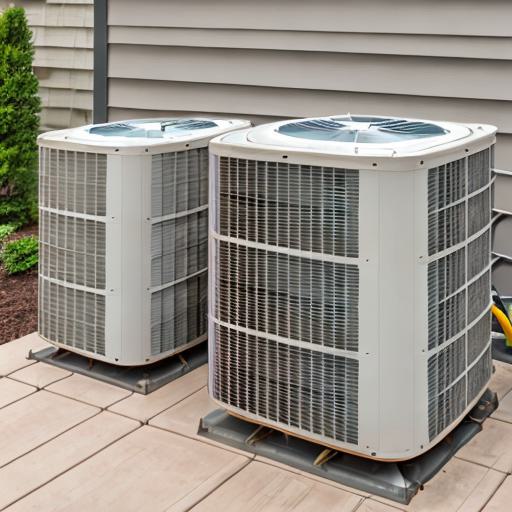HVAC systems are designed to maintain the ideal temperature and humidity level of your home or office. However, the efficiency of your air conditioning unit might start to decline over time. When this happens, you will notice increased energy consumption from the energy bills you receive every month. Your HVAC system might also not deliver the required amount of cooling or heating as it used to before. Once you start noticing these changes, you will be inclined to replace your HVAC system with the intent of solving the existing problems. In this article, we will be discussing some of the things you should consider before replacing your HVAC system.
Check the lifespan of your HVAC unit
Air conditioning units have a certain lifespan of about 10 to 12 years or more. As these systems get older, the movable parts inside get less efficient leading to frequent repairs and high energy consumption. If your HVAC system is approaching this mark, it may not be a good idea to spend more money on endless repairs but rather replace the entire system. Modern HVAC units are more efficient than older units because they are equipped with the latest technology.

Does your AC work right? Do you need to replace your HVAC system?
This means that they use less energy and offer better performance compared to systems that use outdated technology. If you want to get the most returns for your investment in a new HVAC unit, you need to ensure that the existing system is old enough for replacement.
Assess the cost of repair vs replacement
If your HVAC system breaks down at some point, you need to have it checked by a professional to identify the source of the problem. If the cost of repairing the air conditioning unit is more than purchasing and installing a new HVAC system, then you would rather go ahead and invest in a new one. However, if it costs less to repair and it works just fine for a very long time then it would be cheaper to keep it rather than replace it. The best way to ensure that your air conditioning unit is operating efficiently is when you spend less on repairs and you never experience temperature fluctuations or high energy costs.
Check the energy efficient rating
New technologies get discovered as time passes and there is no doubt that modern HVAC systems are more energy-efficient than outdated systems. The energy rating indicates how much energy an air conditioning unit uses every time it is in operation. A system with a lower energy rating will cost you a lot in terms of your monthly energy bills even if it’s working just fine. However, modern HVAC units that have a higher energy rating will save you a lot of money on your monthly energy bills even if they are expensive to buy. Before you invest your money in a new HVAC system, it is important to take into account your budget as well as the SEER ratings (Seasonal Energy Efficiency Ratio).
Consider your home’s resale value
If you are planning to sell your home, replacing an old HVAC with a new one can boost your home’s resale value. Since a modern air conditioning unit is more efficient and equipped with the latest technology, it is more likely to save energy which saves future buyers a lot in terms of monthly bills. Since many homebuyers are looking for a more sustainable place, any feature that reduces energy consumption will be more attractive than having to spend more on repairs, replacement, or high energy costs. When combined with better insulation and other energy-saving features around the house makes new HVAC unit installation a worthwhile investment.
Individual preferences and comfort needs
How satisfied you are with how your HVAC system operates determines whether you should repair or replace your existing unit. For instance, if you don’t see a reason to replace your HVAC system because it operates effectively and you haven’t had any problems with it, you don’t need to invest in a new one. On the other side, you might consider replacing an existing unit with a modern HVAC system that offers numerous features and a better energy rating than what you have. As long as you have a ready budget for the new HVAC system and already made the decision to buy it, then you can go ahead and replace it.
An HVAC system that is properly maintained and operates efficiently can serve you for a very long time. However, if you find yourself spending more money on endless repairs and high energy bills, it would be a good idea to replace your existing HVAC unit with a new one. Modern HVAC systems are equipped with new technology that makes them more efficient than older models.
